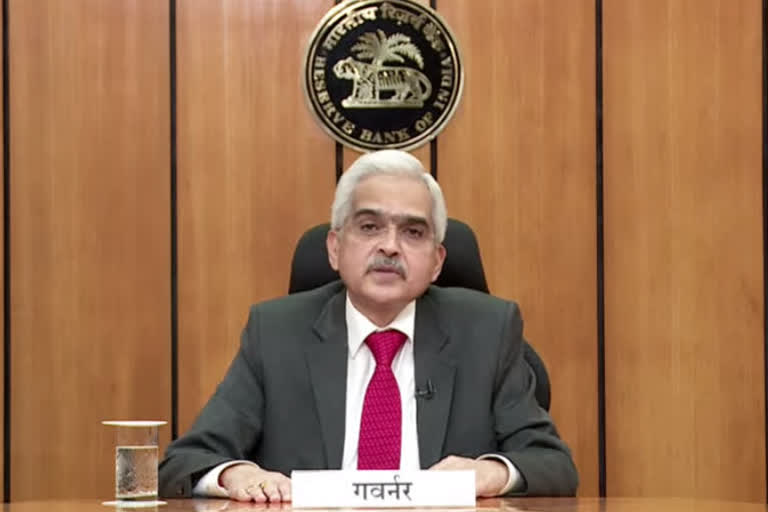Mumbai:Retail inflation is likely to ease to around 5 per cent next fiscal on the back of government measures to ease supplies, reduction in fuel prices as well as prospects of good crops, the Reserve Bank of India said on Wednesday.
For the current fiscal year to be ending on March 31, 2022, retail inflation is expected to be around 5.3 per cent, the RBI said.
The reduction of excise duty and VAT on petrol and diesel will bring about a durable reduction in inflation by way of direct effects as well as indirect effects operating through fuel and transportation costs, RBI Governor Shaktikanta Das said while announcing its bi-monthly policy decision.
"The inflation trajectory is likely to be in line with our earlier projections, and price pressures may persist in the immediate term. Vegetable prices are expected to see a seasonal correction with winter arrivals in view of bright prospects for the rabi crop.
"Cost-push pressures continue to impinge on core inflation, though their pass-through may remain muted due to the slack in the economy," Das said.
Taking into consideration all these factors, CPI inflation is projected at 5.3 per cent for 2021-22: 5.1 per cent in Q3; 5.7 per cent in Q4 of 2021-22, with risks broadly balanced, the RBI Governor said in his policy statement.
CPI inflation is then expected to ease to 5 per cent in Q1 FY2022-23 and stay at 5 per cent in Q2 as well, Das added.
Also Read:RBI Policy: No change in repo, reverse repo rates, GDP growth pegged at 9.5%
The Reserve Bank has kept the repo rate -- at which it lends money to the banks-- unchanged at 4 per cent for the 9th time in a row, committed to continue supporting economic growth amid uncertainty over the impact of the Omicron strain of the coronavirus on the economy.
Das said RBI's monetary policy stance is primarily attuned to the evolving domestic inflation and growth dynamics.
He said the supply-side interventions by the government have limited the fallout of continuing high international edible oil prices on domestic prices.
Even as crude oil prices have seen some correction in the recent period, a durable containment of price pressures would hinge on strong global supply responses to match the pick-up in demand as pandemic restrictions ease, said the apex bank chief.
"Cost-push pressures continue to impinge on core inflation, though their pass-through may remain muted due to the slack in the economy. Over the rest of the year, inflation prints are likely to be somewhat higher as base effects turn adverse; however, it is expected that headline inflation will peak in Q4:2021-22 and soften thereafter," Das added.
He said a well-entrenched nominal anchor provided by the flexible inflation targeting framework has imparted credibility and flexibility to monetary policy to effectively address growth concerns during the pandemic.
In the current situation, it is important to keep inflation aligned with the target while focusing on a robust growth recovery.
"Simultaneously, the Reserve Bank remains cognizant of the need to ensure that financial conditions are rebalanced in a systematic, calibrated and well-telegraphed manner while preventing build-up of financial stability risks," he said further.
PTI
